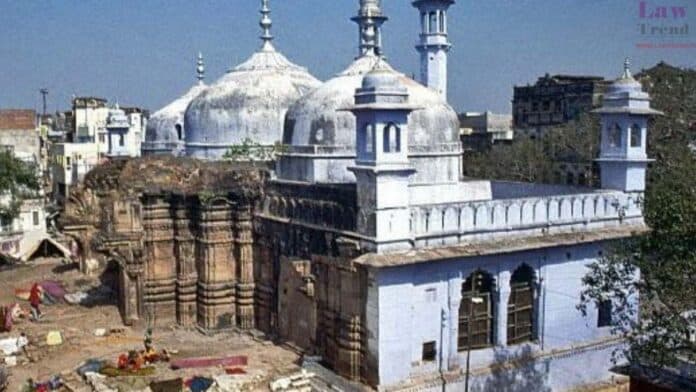In a significant ruling, a Varanasi court has allowed Hindu petitioners to perform worship in the sealed basement of Gyanvapi Mosque.
This decision paves the way for priests from the Vishwanath Temple to conduct prayers in this historically contested space. The court’s order also mandates the removal of barricades to facilitate entry, adhering to a previous Supreme Court directive during an ASI survey.
Varanasi court granted permission for Hindu devotees to offer prayers inside the sealed basement area of the Gyanvapi mosque, known as ‘Vyas Ka Tekhana’. This ruling marks a significant development in the ongoing religious and archaeological discourse surrounding the mosque premises in Varanasi.
The court’s verdict not only allows Hindu worship within the mosque’s confines but also mandates the district administration to facilitate the necessary arrangements for the puja ceremonies. The Shri Kashi Vishwanath Temple Trust has been tasked with appointing a pujari (priest) to oversee the religious activities.
Advocate Vishnu Shankar Jain, representing the Hindu petitioners, hailed the court’s decision as a monumental moment, reminiscent of a similar historic verdict in 1983 by Justice Krishna Mohan Pandey, which led to the unlocking of the Ram Mandir in Ayodhya for Hindu worship.
The directive from the Varanasi court follows a recent plea by four women to the Supreme Court, advocating for an excavation and survey of the Gyanvapi mosque’s sealed sections. This plea was bolstered by a report from the Archaeological Survey of India (ASI), which, according to the Hindu claimants, indicates the presence of a large Hindu temple prior to the mosque’s construction.
The women’s plea to the Supreme Court emphasized the need for a thorough investigation to ascertain the true nature of an object claimed by Muslims to be a fountain but argued by Hindus to be a ‘Shivling’. They proposed that the ASI undertake excavations and apply scientific methods, after removing any modern alterations, to investigate the area surrounding the disputed object without causing it damage.
This recent court order has ignited a mix of reactions, with many viewing it as a pivotal moment in India’s ongoing exploration of its historical and religious heritage. The decision is expected to set a precedent for similar cases involving disputed religious sites across the country.




